カミュ『ペスト』あらすじ感想~コロナ禍により再び脚光を浴びたカミュの代表作
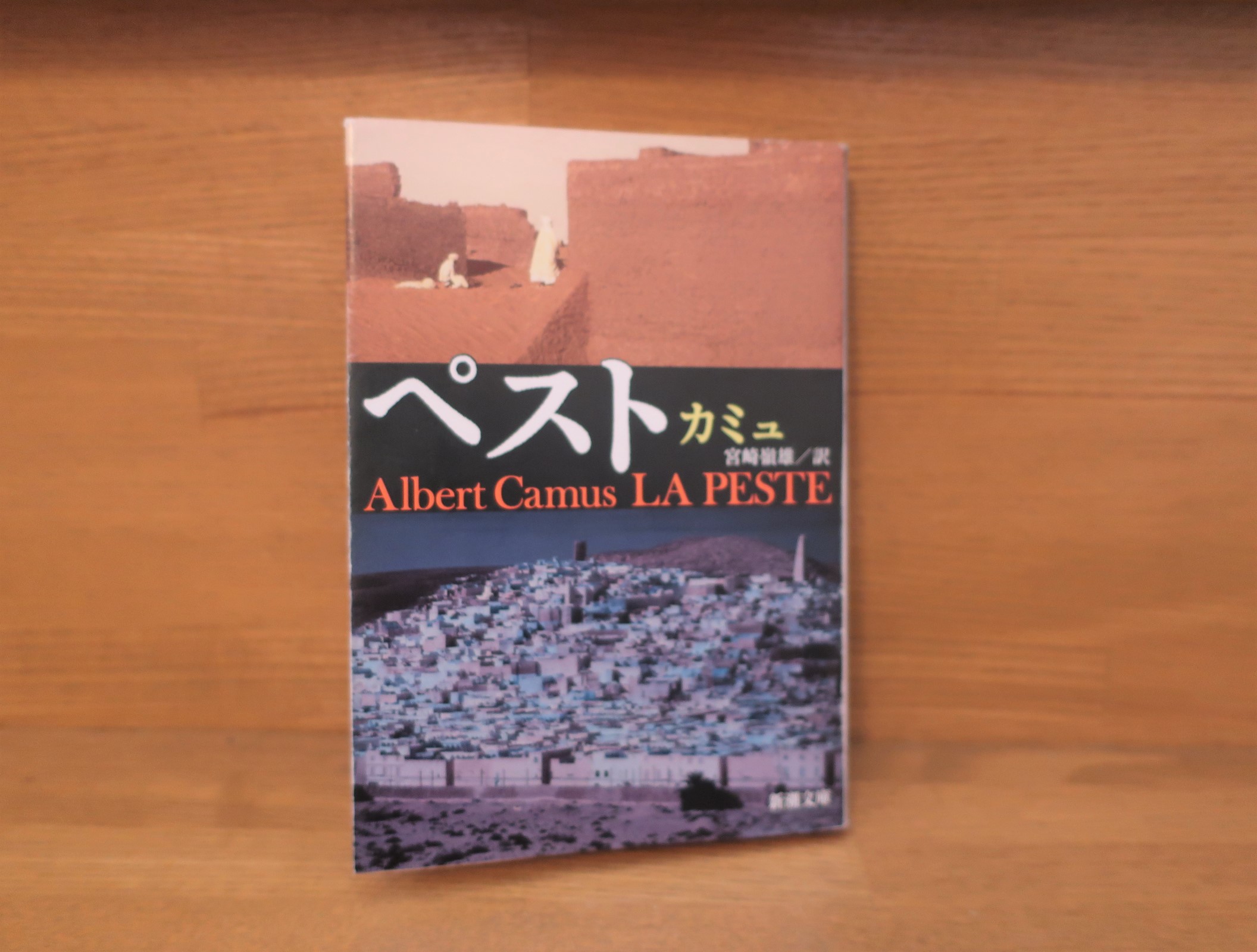
不条理に直面した人間の内面を鋭く描写したカミュの名作『ペスト』
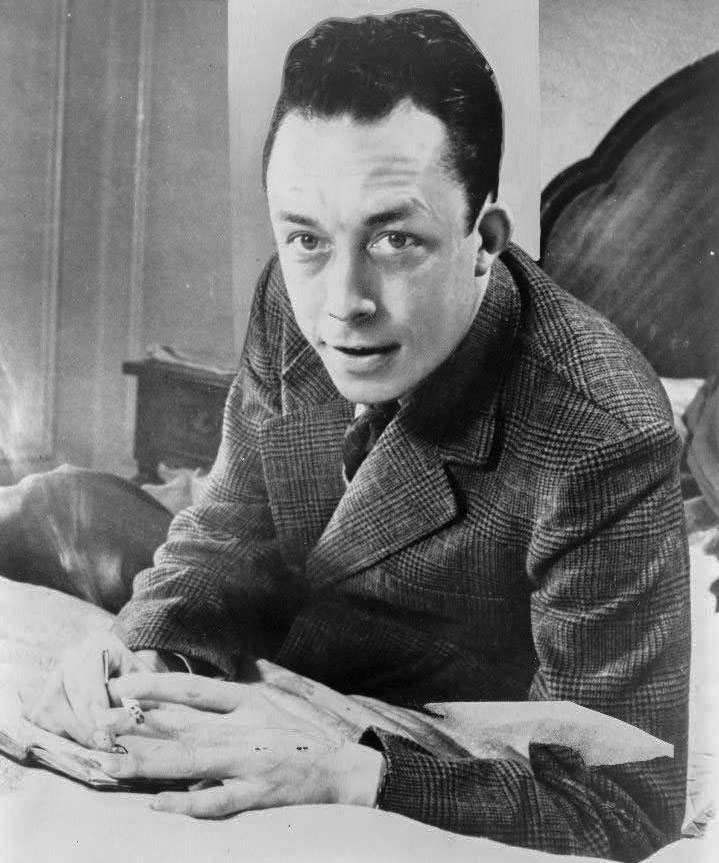
今回ご紹介するのは1947年にフランス人作家カミュ(1913-60)によって発表された『ペスト』という作品です。私が読んだのは新潮社版の『ペスト』です。
早速この本について見ていきましょう。
発表されるや爆発的な熱狂をもって迎えられた、
Amazon商品紹介ページより
『異邦人』に続くカミュの小説第二作。
アルジェリアのオラン市で、ある朝、医師のリウーは鼠の死体をいくつか発見する。ついで原因不明の熱病者が続出、ペストの発生である。外部と遮断された孤立状態のなかで、必死に「悪」と闘う市民たちの姿を年代記風に淡々と描くことで、人間性を蝕む「不条理」と直面した時に示される人間の諸相や、過ぎ去ったばかりの対ナチス闘争での体験を寓意的に描き込み圧倒的共感を呼んだ長編。
この作品は最近コロナ禍によって日本でも話題になりました。
カミュの代表作である『ペスト』は元々名作として世界的に圧倒的な地位を占めていましたが、このコロナ禍において改めて脚光を浴びることになり、書店では品薄になるほど売れたようです。
そんな『ペスト』ですが、私は以前当ブログでロシアの国民詩人プーシキンの『ペスト流行時の酒もり』という作品を紹介しました。
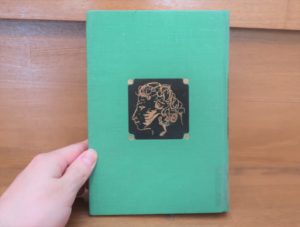
カミュの『ペスト』が流行るならこちらもぜひ世に広まってほしいなと思い、上の記事を書いたのですが、肝心のカミュの作品を私はこれまで読んだことがなかったのでした。特に理由はなかったのですが、なんとなく先延ばし先延ばしになり今に至ってしまいました。
しかし、ある本のおかげでこの本を読もうと思い立つことになりました。それが以前当ブログでも紹介したトニー・ジャッドの『ヨーロッパ戦後史』でした。
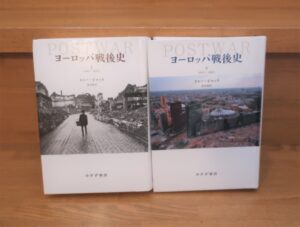
戦後のヨーロッパの歴史を語るこの本の中で、トニー・ジャットは次のように述べていました。
アルべール・カミュ―彼は一九三〇年代にアルジェリアで共産党に短期間入党してすぐ離党していた―は、戦争を経た後には彼の同時代人の多くと同じように、共産主義者、社会主義者、さまざまな立場の急進的改革派によるレジスタンス連合の堅固な信奉者となっていた。彼は一九四四年三月に、アルジェでこう書いている―「反共産主義は独裁の始まりである。」
みすず書房、トニー・ジャット、森本醇訳『ヨーロッパ戦後史』上巻P282
カミュは若い頃に共産党に入党した過去があり、戦後には「共産主義者、社会主義者、さまざまな立場の急進的改革派によるレジスタンス連合の堅固な信奉者」となっていました。しかし、そんなカミュですがそうした過激な思想や、共産主義的な考え方から徐々に距離を置くようになっていきました。
カミュが最初に疑問を抱いたのはフランスでの戦後の裁判や粛清のさなかのことで、その時の共産党はまさにレジスタンスの党として強硬路線を取り、何千人もの現実の、あるいは想像上の「コラボ」に対して追放や投獄や死刑を要求していた。
したがって政治的・思想的な忠誠の動脈が一九四七年から硬化し始めるにつれて、カミュは政治的同盟者が抱く善き信念を次第に疑いがちになっている自分に気がついた―こうした疑いを彼は習慣から、そして統一のために、最初は押しつぶしていたのだった。
彼は一九四七年六月には『コンバ』紙の主宰を降りてしまったが、もはやそれまでの三年間のような政治的確信や楽観が不可能になっていたのである。
カミュは同年刊行された主要作品『ぺスト』(宮崎嶺雄訳・「カミュ全集」4・新潮社)のなかで、自分の政治上の同衾者がもつ強硬な政治リアリズムに得心していなかったことは明らかだ。
彼は登場人物の一人タルーのロを借りてこう言っている―「僕は、直接にしろ間接にしろ、いい理由からにしろ悪い理由からにしろ、人を死なせたり、死なせることを正当化したりする、いっさいのものを拒否しようと決心したのだ。」
みすず書房、トニー・ジャット、森本醇訳『ヨーロッパ戦後史』上巻P282
※一部改行しました
『ペスト』は感染症のパニックを描いた小説だと思っていたのですが、トニー・ジャットのこの言葉を聞いてなるほど、単にそういう話ではないということがわかりました。
ちょうど今私は冷戦期の歴史を学んでいます。カミュのこの作品は当時の思想の流れを知る上で重要な役目を果たしていることをこの本で知りました。
というわけで「読むならば今!」と、この本を手に取ることにしたのでした。
では改めてこの本について見ていきましょう。
アルジェリアのオラン市で、ある朝、医師のリウーは鼠の死体をいくつか発見する。ついで原因不明の熱病者が続出、ぺストの発生である。外部と遮断された孤立状態のなかで、必死に「悪」と闘う市民たちの姿を年代記風に淡々と描くことで、人間性を蝕む「不条理」と直面した時に示される人間の諸相や、過ぎ去ったばかりの対ナチス闘争での体験を寓意的に描き込み圧倒的共感を呼んだ長編。
新潮社、カミュ、宮崎嶺雄訳『ペスト』令和2年第96刷 裏表紙
舞台はアルジェリアのオランという街。
そこでとある日、ネズミの死体が急に街中にあふれ出します。そして不吉な予感の中、謎の病気が蔓延しだします。
間もなく、その謎の病気はペストと判明し街は緊急隔離。医師である主人公のリウーを中心に、ペストによる極限状態で人はいかに生きるのかを描写していきます。
この作品について巻末の訳者解説では次のように述べられています。少し長くなりますがこの作品の魅力をわかりやすく解説していますので引用します。
『ペスト』(La Peste)は『異邦人』に次ぐカミュの小説の第二作であって、一九四七年六月に発表された。そして『異邦人』以来の期待はあったとはいえ、この作品を迎えた爆発的な熱狂は、フランス文壇の近年の驚異であったと言われる。刊行後数日にして≪批評家賞≫を授与されたときも、「これでこの賞も有名になるだろう」と憎まれロをきく者があったくらいで、たちまち各国語に翻訳されて、わずか六カ月のあいだに、かつてマルローの『人間の条件』が十五年を要した地域に読み広められた。
しかもこの作品には、通常の成功作に見られるような、想像や感情に強く訴える要素はきわめて少なく、むしろ主として頭脳に訴える作品である。本来ならば一般の読者には取りつきにくいと思われるこの作品が、こんな爆発的な成功を収めた理由はなんであろうか?
それはこの作品の簡潔なリアリズムが、さまざまの角度からきわめて明瞭な象徴性をもっていて、読者の一人一人がその当面の関心を満足させるものをそこに見いだしうるからだと、カミュ研究家アルべール・マケは言う。
なるほど、それはたしかに第一の、最大の理由であろう。ぺストに襲われ、外部とまったく遮断された一都市のなかで悪疫と戦う市民たちの記録という体裁をとったこの物語において、ぺストの害毒はあらゆる種類の人生の悪の象徴として感じとられることができる。
死や病や苦痛など、人生の根源的な不条理をそれに置きかえてみることもできれば、人間内部の悪徳や弱さや、あるいは貧苦、戦争、全体主義などの政治悪の象徴をそこに見出すこともできよう。たしかにこの作品はそういうふうに書かれており、そしてなによりも、終わったばかりの戦争の生々しい体験が、読者にとってこの象徴をほとんど象徴と感じさせないほどの迫力あるものにし、それがこの作品の大きな成功の理由となったことは疑いがない。
しかしそこにはまた、並々ならぬ文学的修練に培われたカミュの文体の魅力も大いに働いていたことを見のがしてはならぬ。
この圧縮された清潔な文体は、一見いかにも客観的に、つとめて無感動な描写に終始しているが、その簡潔さのかげには、いたるところ、抑えられた感動の美しきがあたかも恥じらうようにひっそりと息づいている。
たとえば老吏グランの生涯など、簡潔な筆で、なんの修飾もなく淡々と語られながら、語り手と語られた人の心の美しさが、沁み入るような感動となって読者の胸に伝わる。心と心の触れ合う微妙な感触を、これほど美しく伝えうる文体をもった作家は、かつてなかったのではないかと思われるほどである。
作品の性質もちがうが、これは初期のエッセーや『異邦人』には見られなかった文体の特質であり、ここにも彼の作家としての大きな成長が見られる。この一作によって一挙に世界的な作家となったことも決して不当な結果ではなく、彼のこんにちの信望もこの文体の清潔な美しさに負うところが少なくないと思われるのである。
新潮社、カミュ、宮崎嶺雄訳『ペスト』令和2年第96刷P463-465
この本を読んでいて私が感じたのは、ペストという病気はあくまで「この作品における舞台設定」なのではないかということでした。
先にも述べましたように、私はこの作品がペストによる大混乱を描いたものだと思っていましたが、読んでいくとあまりそのような雰囲気は感じません。かなり淡々としているのです。
もちろん、ペストによる悲惨な病状や死も語られます。隔離された街の閉塞感や絶望も語られます。
特に中盤に出てくる子供の壮絶な死はぞっとするほどの恐ろしさです。
しかしこの子の死も、彼と関わった医師や神父、そして身内の人々の内面を描くきっかけとして描かれたもののように感じられたのです。
問題はペストによる災害ではないのです。
むしろ、突然襲い掛かってくる不条理に対して人間がどう向き合っていくかということなのです。
このことについては巻末の解説にもより詳しく書かれていますし、実際にこの本を読めばきっとそれは伝わると思います。
この記事ではそれについて具体的にはお話ししませんが、戦後の不安定な世界情勢の中でカミュが何を感じていたのかということもこの作品では感じとることができます。
ナチスやスターリンの全体主義的な「理想のためには全ては許される」という思想へのアンチテーゼが込められているように私は感じました。
そして最後にもう一つ。
私がこの作品を読んで一番強く感じたこと。
それは、「この本を読んで他の人は何を感じたのだろう」ということでした。
コロナ禍でこの本は驚くほどたくさんの人の手に取られることになりました。発行部数が100万部を超えたというニュースもありました。
きっとコロナとペストという類似からこの本は売れたのだと思いますが、きっと多くの人が想像していた物語とは違うものだったのではないかと思うのです。この本は単にペストが流行って街が隔離され、そこで繰り広げられるパニック劇ではありません。ここまで述べてきたように、『ペスト』は不条理と相対した人間の心理や、いかに生きるべきかを問うた作品です。
とすればこれを手に取ったはずの少なくとも100万人近くの人がこうした問いを突き付けられたはずです。
それぞれがそれぞれに導き出す答えがきっとあると思います。それこそ100万通りの答えがあるはずです。
カミュはこの作品を通して人間と不条理の問題を提起しようとしました。この作品を読んだ私たちは一体何を感じ、どう生きていくのでしょうか。
先日もいつも行くスタバの店員さんに「この前『ペスト』読まれてましたよね。私も好きなんです」と言われました。そのときすぐに「どんなところが好きですか?」と聞ければよかったのですが、とっさのことでもごもごしてしまいそれもならずで終わってしまいました。
ただ、この店員さんのようにそれぞれ心に来るものがきっとあるはずなのです。それが何かを聞いてみたいというのが私の中で浮かんだ一番の感想でした。「みんなはこれを読んでどう思ったのだろう」。これですね。
本の内容についてはあまり触れられませんでしたが、まだ読まれていない方もぜひ手に取って頂けたらなと思います。そして皆さんはどう思うか聞かせて頂けたらなと思います。
以上、「カミュ『ペスト』あらすじ感想ー不条理に直面した人間の内面を鋭く描写した名作」でした。
Amazon商品ページはこちら↓
次の記事はこちら

前の記事はこちら

関連記事
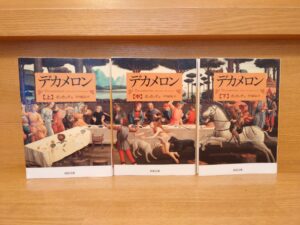

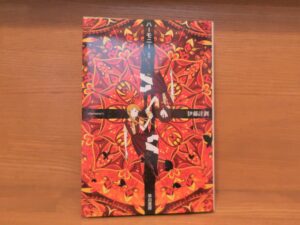


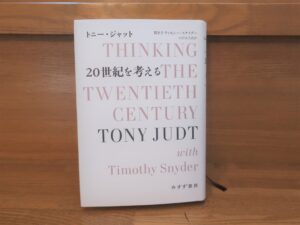
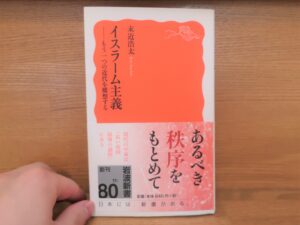

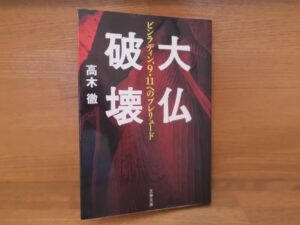
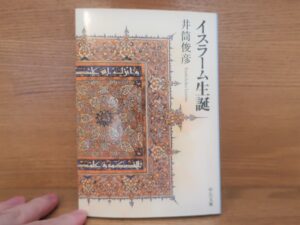
コメント